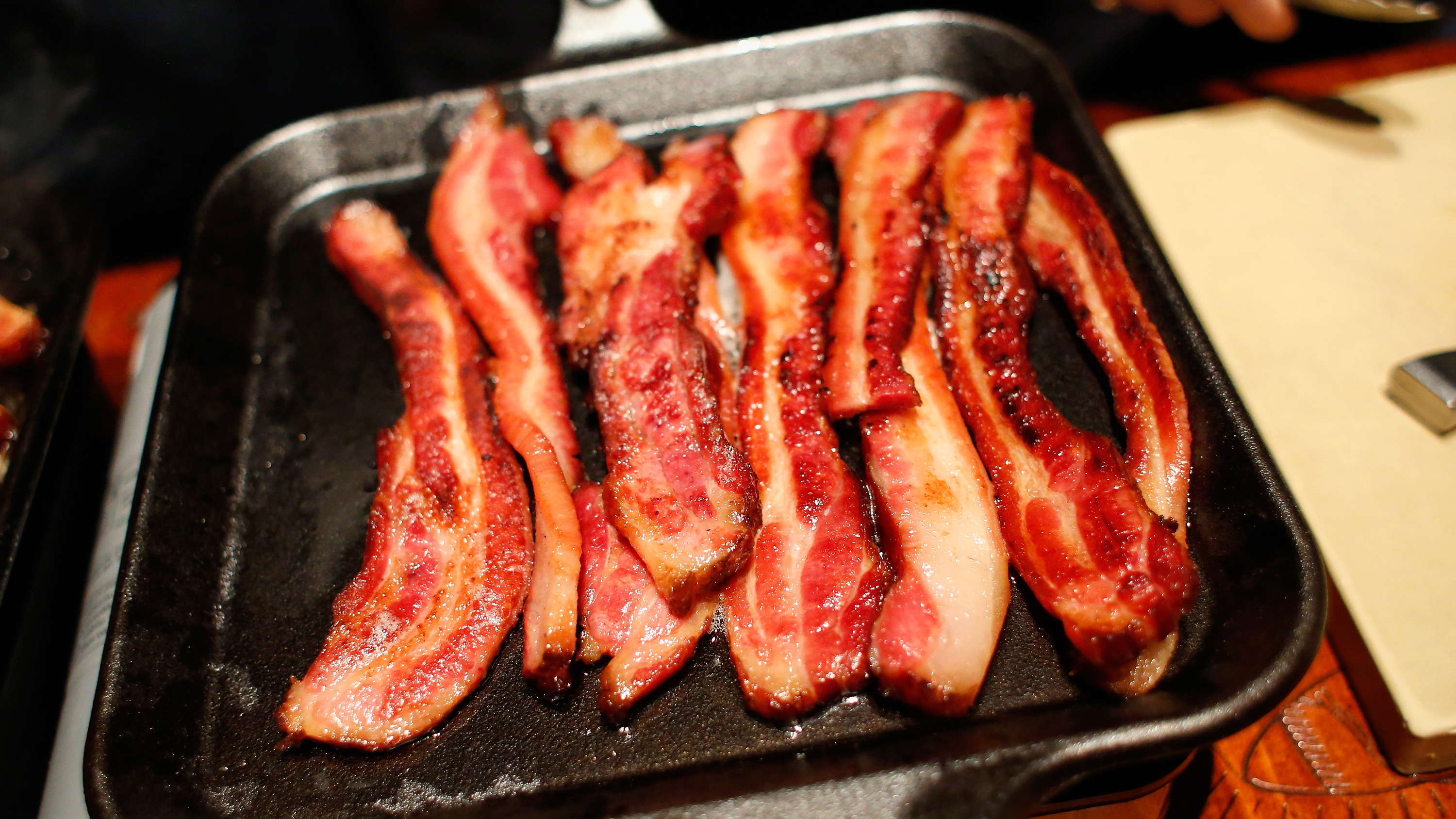How Will Trump's Tariffs Affect Your Food Budget?
Donald Trump recently tweeted that "Trade wars are good, and easy to win," which is totally true if you don't know anything about trade or wars. But there may be losses around the country for producers of some of the goods affected by retaliatory Chinese tariffs. Yesterday, China announced its considerable tariff plans, helpfully mapped out by The Wall Street Journal:
In light of China's announcement, Fortune points out today that "Since China was the world's second-largest buyer of U.S. pork by volume between 2008 and 2017, behind only Mexico, that has major implications for pork producers." Basically, if China slaps a 25-percent tariff on bacon, say, it will probably buy less of that product, so American farmers will have to find another buyer to fill that market—or raise the cost significantly. Which, in turn, will have an effect on the many bacon lovers among us.
Soybean farmers, however, as the WSJ graph shows, could see an even bigger hit. Wendong Zhang, an assistant professor of economics at Iowa State University, tells Fortune that "one out of every four bushels of soybeans grown in the U.S. currently goes to China." MarketWatch stresses "that the soybean tariff potentially impacts anyone who eats. Soybeans are a key fixture of the global food chain, used as a source of oil and as a milk alternative. Importantly, soybean products feed livestock such as cattle, hogs, chickens and farm-grown fish, notwithstanding soy's role in many diets as a protein supplier all by itself."
The Wall Street Journal states that China's tariff plans, reported this week, may be even more far-reaching: "Also prominent in China's retaliation are sport-utility vehicles and other agricultural products, from beef to sorghum—goods that were chosen to hit U.S. states that supported President Donald Trump, according to people familiar with Beijing's plans."
As with pork, the soybean tariff could cause U.S. farmers to have to raise their prices in order to make up for the lost profit. Meanwhile, senators from individual agriculture states are trying to defend their farming citizens:
Illinois is our nation's largest producer of soybeans, and a top producer of pork, and will feel China's retaliation to threats of a trade war more than most. https://t.co/ukDQEEu8XJ
— Senator Dick Durbin (@SenatorDurbin) April 4, 2018
Who's gonna get slammed by the Trump tariffs? Virginia farmers! Agriculture is our largest private industry: we produce some of the best soybeans, pork, apples and wine and sell them across the world. Our economy and so many jobs at risk because of this. https://t.co/LruwxzxpIl
— Tim Kaine (@timkaine) April 5, 2018
Speculation is all anyone can look to at the moment; China has not stated when the tariffs will actually be imposed. Only then will we see what the actual effects on the U.S. prices will be.
